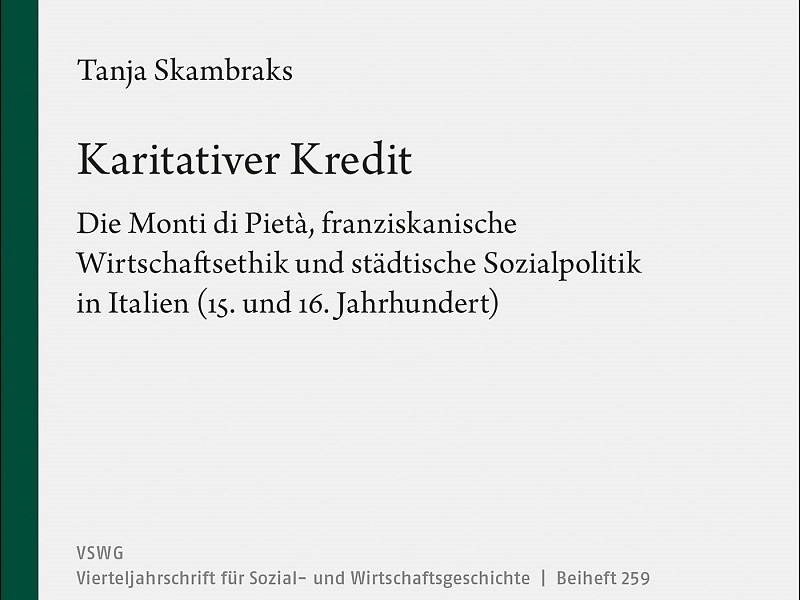
The book by Tanja Skambraks Karitativer Kredit. Die Monti di Pietà, franziskanische Wirtschaftsethik und städtische Sozialpolitik in Italien (15. und 16. Jahrhundert) has been published for the Frank Steiner Verlag.
The book investigates the history of the Monti di Pietà (pawnshops) in the 15th and 16th centuries. These institutions, based on the ideas of charity and the common good, granted small, low-cost loans to artisans, day labourers and small traders, and also offered money investment and banking services. The study starts from the presentation of the Franciscan economic ethic through the analysis of not only Latin and Italian sources, such as treaties and consilia, but also iconography. Then the author focuses on the presentation of the different economic and institutional solutions devised by various Italian Monti di Pietà, in particular in Rome, Perugia, Verona and Lapedona, based on a rich selection of Latin and Italian sources, such as administrative writings, account books and statutes. The analysis is not limited to the Italian world, but broadens the view to include some overviews of treatises and institutions from the German area.
The volume is thus a new study on an institution that was founded at the end of the Middle Ages and based its origin on the idea of micro-credit as a successful tool for poverty reduction, a long-lasting theme that is also fundamental in contemporary reflection.
The table of contents is available in the download box.